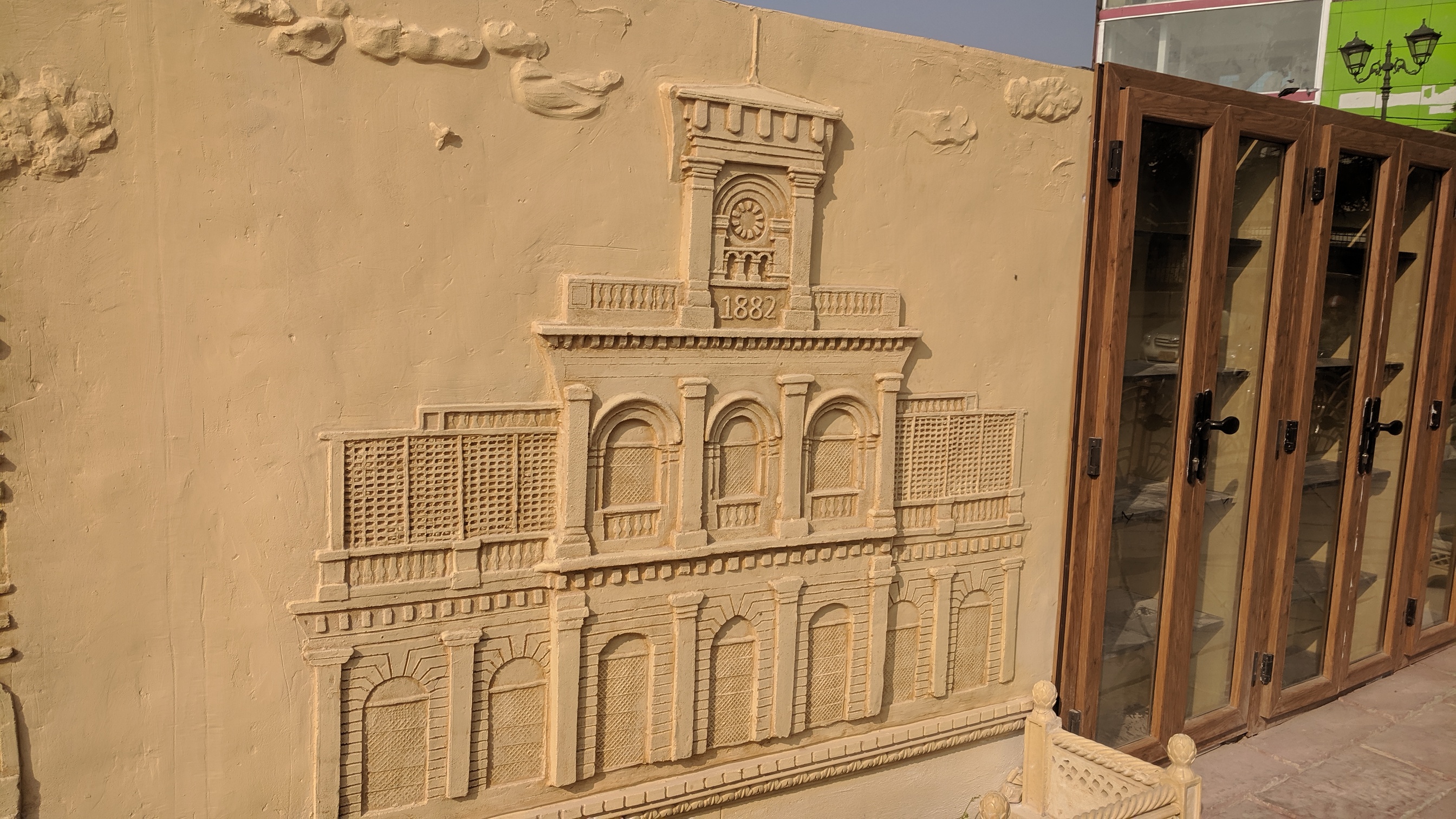KARACHI: For a city that is proud of its unique history and culture, Karachi is like an open book.
And to encourage more people to find joy in the rich literature on offer, authorities have devised a unique solution to foster a love of reading – street libraries.
For the purpose, the Karachi Commissioner’s Office has decorated the wall surrounding the Metropole building with portraits of Pakistan’s founder Muhammad Ali Jinnah, his sister Fatima Jinnah, celebrated poet Allama Iqbal, and the first Prime Minister Liaquat Ali Khan. Between the portraits, wooden bookshelves have been installed.
“The idea behind this first street library of Pakistan is to promote the habit of book reading, which is very essential for any society,” Commissioner Iftikhar Shalwani told Arab News.
The first of its kind street library will be inaugurated on Dec. 25 on Jinnah’s birthday.
“We are also working on upgrading public libraries in different districts of the city. One of those will be named as the city’s central library,” Shalwani said, explaining that the bookshelves have yet to be filled and that the symbolic library will operate on the “take a book and leave a book” basis.

Wooden bookshelves will be filled upon the inauguration of Karachi's first street library on Dec. 25 – the birthday of Muhammad Ali Jinnah. Photo taken in Karachi on Dec. 16, 2019. (AN photo)
Writers and bibliophiles have welcomed the initiative.
“Any efforts for reviving the culture of book reading should be appreciated,” said Sahar Ansari, a renowned poet and member of the commissioner’s library committee.
“Although promoting book reading in this era of the Internet is a difficult task, sincere and well thought efforts never fail,” he said.
He recalled the city’s rich culture of book reading and “aik ana” (one penny) libraries in the past, which worked on the principle of affordable reading whereby a book could be borrowed for a penny.
“The city had many public and private libraries where thousands would throng to read books on history, literature, science and other subjects of their interest,” Ansari said, adding that personal libraries used to be considered “a status symbol.”
Nowadays, however, although the website of the Karachi Metropolitan Corporation lists 41 libraries in the city, only a few remain fully functional. “The libraries of different (foreign) consulates in Karachi would attract a good number of readers,” Ansari said, but security measures often discourage readers from visiting.

The Metropole building's wall is also decorated with reliefs presenting the city's heritage sites. Photo taken in Karachi on Dec. 16, 2019. (AN photo)
Among those who keep the culture of letters alive, he said, are sellers at Regal Chowk, Frere Hall, and next to Baitul Mukarram Mosque, who every Sunday offer old books.
Journalist and writer Ghazi Salahuddin, who used to host a book show on a Pakistani news channel, also appreciated the street library initiative, but offered a caveat.
“Quality and newer titles should be added to the library to make it more attractive to the readers,” he said.



















